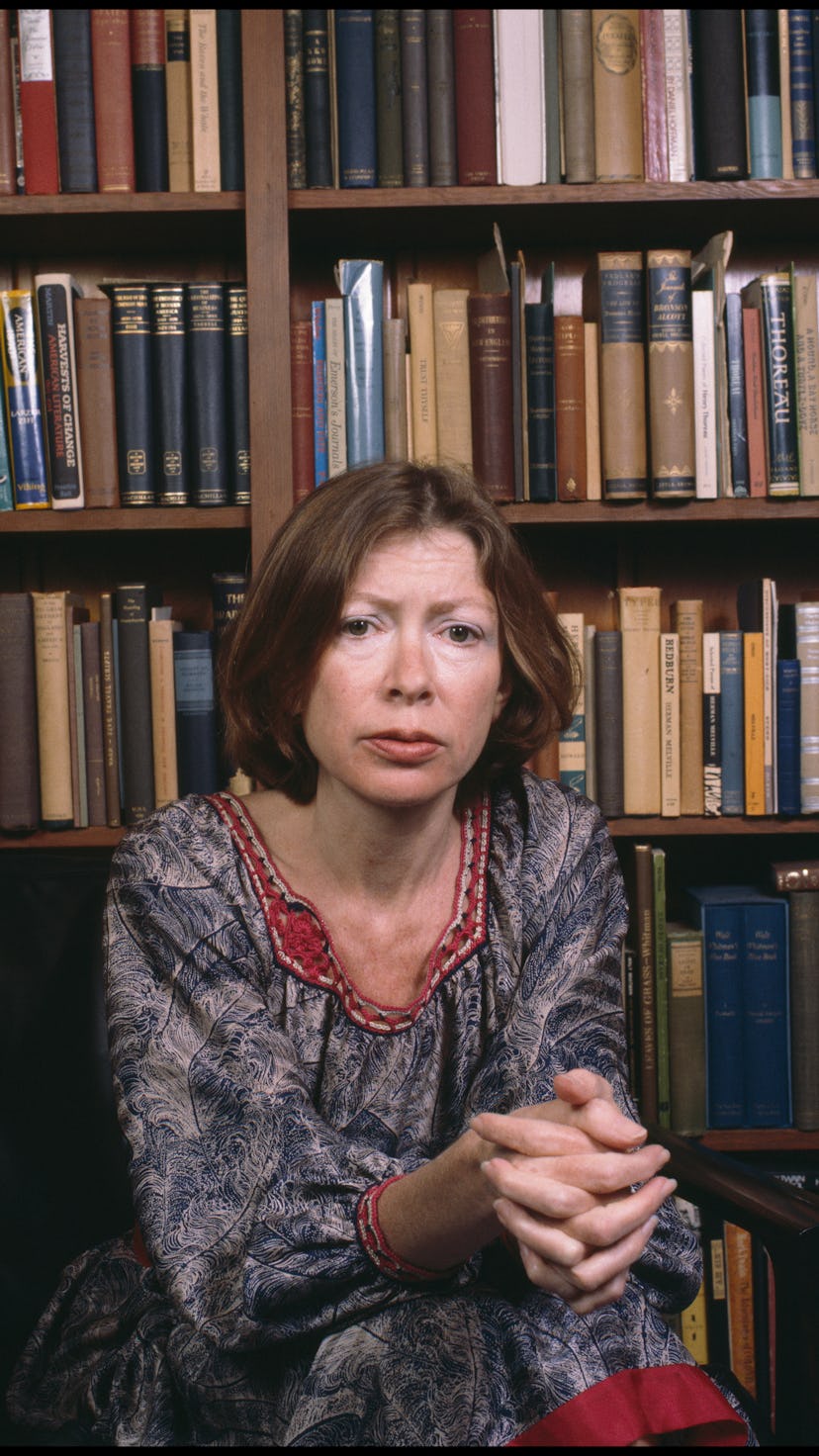Ted Streshinsky Photographic Archive/Corbis Historical/Getty Images
On Dec. 23, Joan Didion’s longtime publisher announced that the novelist, screenwriter, and cultural critic died at 87 after a battle with Parkinson’s disease. Didion is remembered as a pioneer of “New Journalism,” and a masterful stylist — both in her craft and through her image.
Ted Streshinsky Photographic Archive/Corbis Historical/Getty Images
Though Didion spent much of her life in Manhattan, her work celebrates her Sacramento roots. Through her novels and nonfiction, Didion was one of our most astute observers of Californian culture. Later in life, after experiencing the loss of both her husband and daughter, she also became a leading thinker on grief. But the best way to reflect on Didion’s legacy is through her own words. Read on for her most profound quotes.
Janet Fries/Hulton Archive/Getty Images
“We tell ourselves stories in order to live...We look for the sermon in the suicide, for the social or moral lesson in the murder of five. We interpret what we see, select the most workable of the multiple choices. We live entirely, especially if we are writers, by the imposition of a narrative line upon disparate images, by the ‘ideas’ with which we have learned to freeze the shifting phantasmagoria which is our actual experience.” (The White Album, 1979)
Neville Elder/Corbis Entertainment/Getty Images
“I think we are well advised to keep on nodding terms with the people we used to be, whether we find them attractive company or not. Otherwise they turn up unannounced and surprise us, come hammering on the mind's door at 4 a.m. of a bad night and demand to know who deserted them, who betrayed them, who is going to make amends.” (Slouching Towards Bethlehem, 1968)
John Bryson/The Chronicle Collection/Getty Images
“In theory momentos serve to bring back the moment. In fact they serve only to make clear how inadequately I appreciated the moment when it was here. How inadequately I appreciated the moment when it was here is something else I could never afford to see.” (Blue Nights, 2011)
Pete Marovich/Getty Images News/Getty Images
“The impulse to write things down is a peculiarly compulsive one, inexplicable to those who do not share it, useful only accidentally, only secondarily, in the way that any compulsion tries to justify itself. I suppose that it begins or does not begin in the cradle.” (Slouching Towards Bethlehem, 1968)
Jemal Countess/WireImage/Getty Images
“What makes Iago evil? Some people ask. I never ask.” (Play It as It Lays, 1970)
Ted Streshinsky Photographic Archive/Corbis Historical/Getty Images
“[O]ne of the mixed blessings of being twenty and twenty-one and even twenty-three is the conviction that nothing like this, all evidence to the contrary notwithstanding, has ever happened before.” (Slouching Towards Bethlehem, 1968)
Liz O. Baylen/Los Angeles Times/Getty Images
“We are imperfect mortal beings, aware of that mortality even as we push it away, failed by our very complication, so wired that when we mourn our losses we also mourn, for better or for worse, ourselves. As we were. As we are no longer. As we will one day not be at all.” (The Year of Magical Thinking, 2005)
Patrick McMullan/Patrick McMullan/Getty Images
“We forget all too soon the things we thought we could never forget. We forget the loves and the betrayals alike, forget what we whispered and what we screamed, forget who we were.” (Slouching Towards Bethlehem, 1968)
Patrick McMullan/Patrick McMullan/Getty Images
“There were odd things going around town. There were rumors. There were stories. Everything was unmentionable but nothing was unimaginable. This mystical flirtation with the idea of ‘sin’ — this sense that it was possible to go ‘too far,’ and that many people were doing it — this was very much with us in Los Angeles in 1968 and 1969. A demented and seductive vortical tension was building in the community. The jitters were setting in. I recall a time when the dogs barked every night and the moon was always full.” (The White Album, 1979)
Frank Edwards/Archive Photos/Getty Images
“A single person is missing for you, and the whole world is empty.” (The Year of Magical Thinking, 2005)
